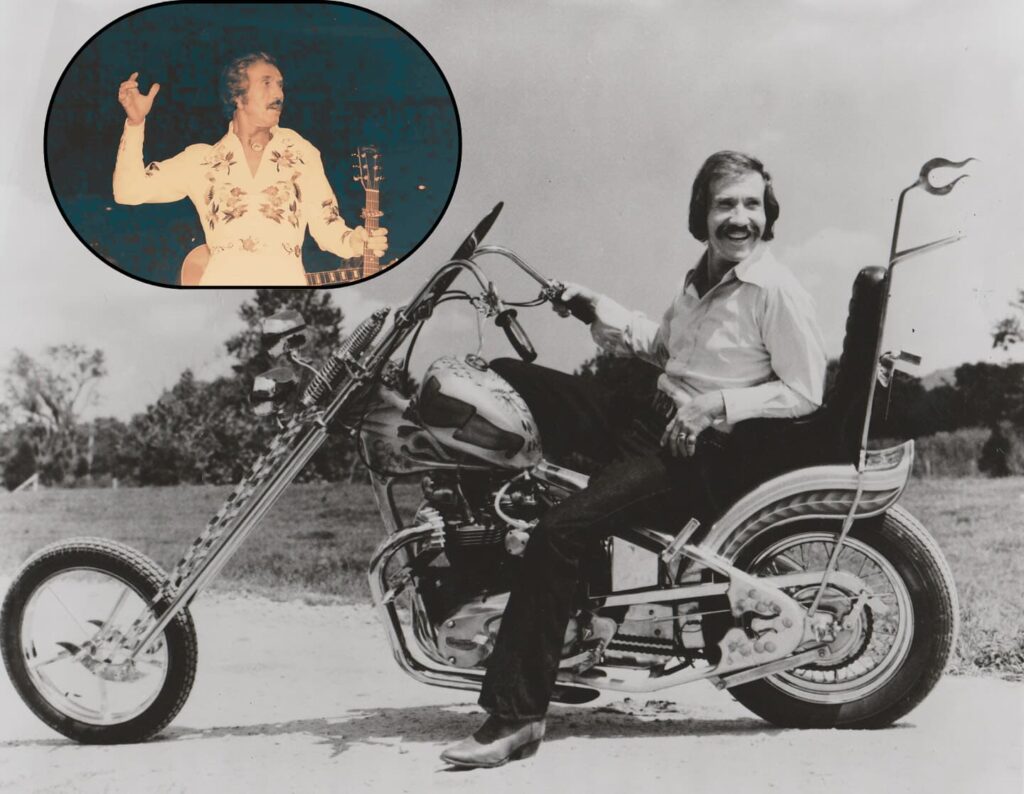
A Bullet-Riddled Heartbreak: The Enduring Legacy of a Lonesome Rider
Ah, Marty Robbins. Just hearing that name, doesn’t it conjure up images of wide-open plains, dusty saloons, and the stark, beautiful simplicity of a cowboy’s life? For many of us, his voice is inextricably linked with a certain era, a golden age of country and western music where storytelling was king and every note seemed to carry the weight of a thousand sunsets. And among his vast catalog of classics, one song, in particular, stands out for its raw emotional power and its stark portrayal of a life lived on the very edge: “Running Gun.”
Released in 1959, “Running Gun” was more than just a song; it was a mini-epic, a tragic Western unfolding in under three minutes. While it didn’t quite reach the dizzying heights of some of his other chart-toppers like “El Paso,” which famously held the number one spot on the Billboard Hot Country Singles chart for seven weeks and even crossed over to the pop charts, “Running Gun” still made a respectable showing, peaking at number six on the Billboard Hot Country Singles chart. For those of us who remember the airwaves of the late 50s, its distinctive melody and heartbreaking narrative were undeniably present, a constant, low thrum beneath the more upbeat tunes of the day.
The story behind “Running Gun” is as compelling as the song itself, deeply rooted in the Western mythology that Marty Robbins so brilliantly inhabited. He had an unparalleled knack for crafting narratives that felt authentic, whether he was singing about forbidden love, heroic cowboys, or the grim realities of life in the untamed West. “Running Gun,” with its stark tale of a young man caught in a cycle of violence, perfectly encapsulates this ability. It’s a character study, a tragic operetta condensed into a few verses. The protagonist, a young man who has lived by the gun since the age of seventeen, is constantly fleeing, constantly looking over his shoulder. He’s a product of his environment, a victim of circumstance, and perhaps, his own choices. The beauty and the tragedy of the song lie in its portrayal of this man’s internal struggle, his desperate longing for peace and escape, even as he knows his fate is sealed.
The meaning of “Running Gun” resonates far beyond its Western setting. It’s a poignant reflection on the consequences of violence, the inescapable grip of one’s past, and the elusive nature of redemption. The young man in the song is not inherently evil; he’s simply trapped. He’s a symbol of anyone who feels caught in a cycle, whether it’s poverty, addiction, or a string of bad decisions. His desperate plea, “Oh, Lord, I’m tired of runnin’, Lord, I’m tired of runnin’ alone,” is a universal cry for solace and release. It reminds us of the human cost of a life lived outside the bounds of law and order, but also of the profound loneliness that can accompany such a existence. For many of us who grew up with these stories, it wasn’t just about the shootouts and the showdowns; it was about the humanity beneath the Stetson hats and the worn leather chaps. It was about the quiet despair and the desperate hope for something better, even if that hope was ultimately extinguished.
“Running Gun” wasn’t part of a specific concept album in the way that “Gunfighter Ballads and Trail Songs” (released the very next year, in 1959, and featuring the monumental “El Paso”) would be, but it certainly shares the thematic DNA of that iconic work. It solidified Marty Robbins’s reputation as a master storyteller, a balladeer who could transport his listeners to another time and place with just a few chords and a heartfelt vocal. The spare arrangement, often just Robbins’s distinctive guitar work and a subtle rhythm section, only amplifies the song’s emotional impact. There’s no hiding behind elaborate instrumentation; it’s just the raw story, delivered with an honesty that could bring a tear to the eye of the toughest cowboy.
Listening to “Running Gun” now, all these years later, it still stirs something deep within. It’s not just the memory of a simpler time, or the nostalgia for a genre that once dominated the airwaves. It’s the timeless quality of the storytelling, the raw emotion in Marty Robbins’s voice, and the universal themes of struggle and longing that continue to resonate. It’s a reminder that even in the most hardened hearts, there’s a yearning for peace, a desire to lay down the burdens of the past and find a moment of quiet solace. And that, dear friends, is the enduring magic of Marty Robbins and his unforgettable tale of the “Running Gun.”